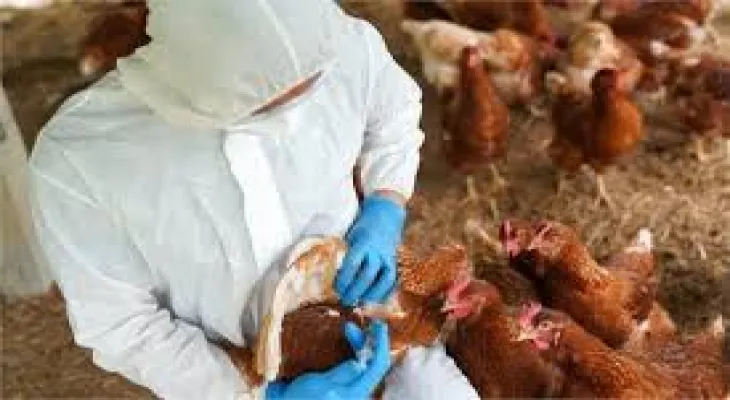Search here
Newspaper
Search here

Arab Canada News
News

Published: April 10, 2024
In the weeks following the release of a joint press statement by several American agencies about H5N1 virus outbreaks among dairy cows across the country, two US states bordering Canada have now confirmed cases: Idaho and Michigan.
The rapid spread of avian influenza among dairy livestock in the United States has led to the diagnosis of at least one person infected with the virus, a reminder that it can be transmitted between species.
Some states have issued reminders about safe cooking methods and warnings against preparing eggs in any way where the yolk remains liquid.
Is it safe to eat chicken and eggs?
With such warnings from officials south of the border, Canadians might wonder if it is safe for them to consume eggs, poultry, and meats.
Matthew Miller is the director of the Michael G. DeGroote Institute for Infectious Disease Research at McMaster University. Speaking to CTV News, he was quite straightforward when asked if there was a risk to the food Canadians consume.
Miller said, "No, there isn’t." "Agricultural surveillance for avian influenza is excellent. It is always important to follow proper cooking standards, as there are always other bad bacteria that can come from beef or chicken, but (Canadian) food processing standards protect consumers.
On March 31, the Canadian Food Inspection Agency (CFIA) said in a statement that it had not detected avian influenza in dairy cows or other livestock, but it is closely monitoring the situation.
Not a food safety issue
CTV News contacted several Canadian agricultural organizations for comment.
Lucy Pawlowski, communications director at Dairy Farmers of Canada, told CTV News: “Canadian dairy producers already adhere to some of the highest biosecurity standards in the world.” "It is noteworthy that only milk from healthy animals is allowed to be distributed and consumed by humans."
Bam Basrino, head of communications at Egg Farmers in Ontario, also told CTV News that consumers should be assured that CFIA is clear this is "not a food safety issue."
"Avian influenza does not pose a threat to food safety, as it only affects birds. Poultry and eggs are safe to eat when handled and cooked properly." Basrino said, "There is no increased public health risk related to avian influenza."
Miller explained that farmers dealing with livestock are well aware of infection handling rules, and there are already established practices in poultry environments to avoid contamination.
Can humans get avian influenza?
However, a large part of that is because chickens are usually housed in barns, and it is very difficult to protect animals that are usually in free environments, such as cattle, from migratory birds that might carry the virus, as well as preventing contamination of other livestock.
Alongside the impact the disease can have on food, Miller says what Canadian farmers and officials should be more concerned about is preventing the spread of avian influenza to humans.
Miller said, "The most important thing we can do in the current context is to do everything we can to prevent transmission between humans." "No amount of energy or expense should be spared in taking every possible step to avoid those cross-species transmission events from animals to humans."
A person in Texas was diagnosed with avian influenza last week, and state health officials said the person had contact with cattle presumed to be infected. While experts say it is unlikely to spread beyond a few isolated cases, there is nothing like being extremely cautious in the post-COVID-19 world.
Miller said, "Everyone is painfully weary of dealing with infectious diseases, and I think this has led to people wanting to forget the risks they pose, which is understandable." "But the one thing it is really important to emphasize to our leaders and politicians is the importance of prevention.
"No one wants to live under another COVID pandemic, so the collective call on government to invest in strong preventive strategies is really important." He continued: "Prevention is much cheaper than responding to a pandemic."
As for individual precautions to avoid the disease, Miller says dead animals should be avoided and the relevant authorities contacted to dispose of their bodies, as well as cleaning shoes regularly worn while walking in areas where bird or goose droppings are common.
Comments